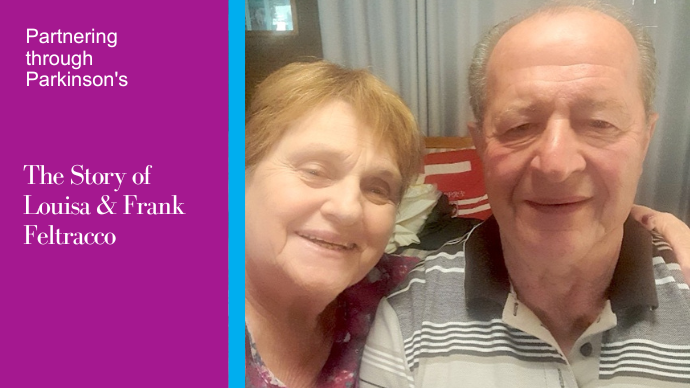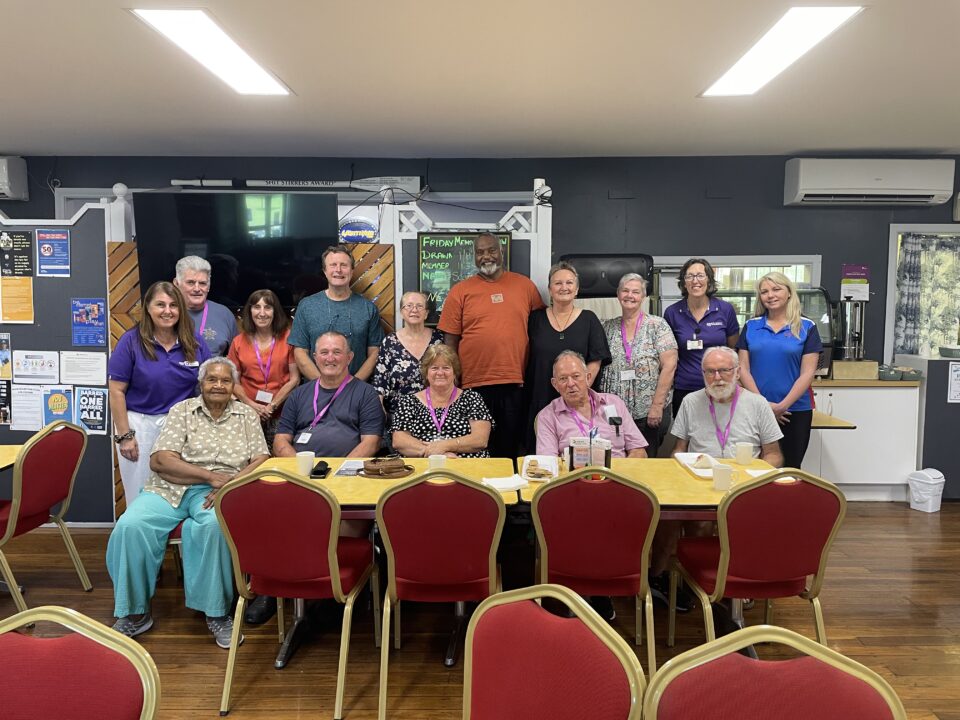Partnering through Parkinson’s – Louisa and Frank Feltracco

Support Group Roundup
17th December 2024
Coping with the post-holiday blues
10th January 2025Partnering through Parkinson’s – Louisa and Frank Feltracco

Partnering through Parkinson’s – Louisa and Frank Feltracco
Frank Feltracco, now 77, arrived in Griffith from Italy with his family as a three-year-old, while his wife, Louisa, 73, was born in the town.
Frank and Louisa married in 1970 in the little village of Yoogali outside Griffith and have lived in the area all their lives. Louisa now leads the Griffith Parkinson’s Support Group while Frank still works part time driving a bus for a local aged-care centre.
Back in 2008, Frank, who then worked for a winery, had started to be troubled by a tremor in his left hand.
“He was finding that it was shaking, and he was losing strength when doing woodwork and things,” recalls Louisa. “He went to the doctor to get it checked out, but she didn’t take too much notice and said it was essential tremor.
“However, it was slowly getting worse, and Frank was becoming more anxious. Eventually I checked ‘Dr Google’, and the more I read, the more I thought it was Parkinson’s.”
In 2012, Louisa accompanied Frank back to see their doctor.
“I said that it was getting to Frank and he was always getting cranky with himself, and that I was thinking it was Parkinson’s,” explains Louisa. “The doctor said yes, and that he needed to see a neurologist.”
After discovering that there was a six-month wait to see their nearest neurologist in Wagga, Louisa managed to get an appointment in a couple of weeks in Albury.
“The doctor told Frank straight away he had Parkinson’s,” says Louisa. “He put him on medication for the tremor and we stayed with this neurologist until we heard a talk in Griffith by a Sydney-based professor and changed to seeing him from 2016.”
Louisa and Frank first heard about Parkinson’s seminars early 2012 when friends told them about one taking place in Wodonga, Victoria, which they all attended.
“We learned a lot there,” says Louisa. “A lady there had been through Deep Brain Stimulation surgery and was a great speaker. She showed us videos of how she was before and after. I thought that at least Frank wasn’t that bad.
“In 2013 we’d go to occasional seminars at Wagga which is where I got to know Kate, the local Parkinson’s nurse.
“A couple of years after attending Griffith Support Group meetings, Kate and another woman who was running yoga programs asked me to take over the Support Group. I became the leader and coordinator and later exercise supervisor. We have meetings once a month, alternating meetings with carers’ meetings.
“It’s very important for carers to take time out for themself and be able to get support as well through meeting up with other carers who know what it’s like.
“We also have a special, gentle sitting-and-standing balance exercises group meeting fortnightly and on the alternate fortnight we have cardio at a gym. The exercise classes are very social with laughter and funny comments to egg each other on, with lunch a must afterwards.
“I organise guest speakers for our meetings too. There are a lot of people with Parkinson’s in the Griffith area. We send out emails and post mail about the meetings. While not everyone comes along, at least they know there are meetings if they want to come sometimes.”
Because Frank’s Parkinson’s has not progressed much and his medications still manage his symptoms, he is able to also continue a busy social life with Louisa.
“We go dancing once a week and bingo once a week,” says Louisa. “We go out for dinner sometimes with people and out for morning coffee and other things.
“Frank walks a bit slower now but mind-wise he’s very good. He enjoys doing the bus run once a fortnight, getting out and meeting different people. At home he does gardening and work outside.
“Frank also keeps his mind active every day by doing Sudoku in books and also word fit puzzles, which he found in the Daily Telegraph.”
Louisa puts a lot of time and energy into running the local Support Group and says her experiences early on with other groups gave her both information and encouragement.
“Frank has never been one to sit at home and think ‘poor me’; I really like to encourage other people not to sit back either,” she says.
“The way to deal with Parkinson’s is not to stress out – but take medication on time, exercise daily, socialise and take each day as it comes. If you have a problem, there is always an answer how to deal with it. I’ve always been one to read further on anything, and there is lots of information there if you need it.
“Support from family and friends is very important to us. We have a son and daughter who are both married, and we have four grandchildren. We have Saturday night dinners at our place with them all and they are very supportive in everything we do.”
Related stories



